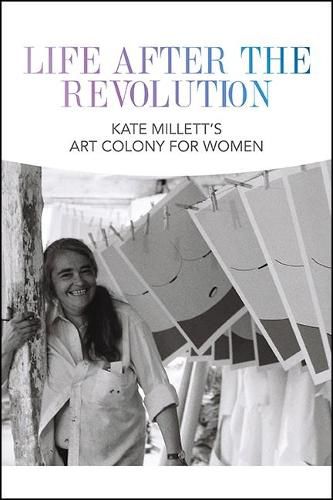Readings Newsletter
Become a Readings Member to make your shopping experience even easier.
Sign in or sign up for free!
You’re not far away from qualifying for FREE standard shipping within Australia
You’ve qualified for FREE standard shipping within Australia
The cart is loading…






In 1970, with the advance from her book Sexual Politics, writer and visual artist Kate Millett (1934-2017) bought a run-down farmhouse on the outskirts of Poughkeepsie, New York. Originally intended as a private retreat, by 1978, in collaboration with her partner Sophie Keir, plans for a women’s art colony were underway. Friends, artists, and volunteers from the Women’s Movement journeyed to the Farm to renovate the barns and create living quarters as well as art studio spaces. To make the colony self-sustainable, Millett purchased seventy-three acres of neighboring land; the rather unlikely crop they chose to grow was Christmas trees. By the mid-1980s, summer residencies began, with artists working on the Farm for five-hours a day and spending the remaining time on their art practice. Millett described the art colony as life after the revolution, a place where women could experience freedoms that the Women’s and LGBTQ civil rights movements were fighting for, but that were not yet available in mainstream society. For over four decades Millett Farm was a dynamic haven where artists facing pervasive sexism and homophobia boldly built a space where they could create community and art together. This exhibition catalog tells the story of this inspiring venture in contemporary art and queer feminist activism with archival photographs, an essay by a former colonist Anne B. Keating, and a group conversation between founders of Millett Farm.
$9.00 standard shipping within Australia
FREE standard shipping within Australia for orders over $100.00
Express & International shipping calculated at checkout
In 1970, with the advance from her book Sexual Politics, writer and visual artist Kate Millett (1934-2017) bought a run-down farmhouse on the outskirts of Poughkeepsie, New York. Originally intended as a private retreat, by 1978, in collaboration with her partner Sophie Keir, plans for a women’s art colony were underway. Friends, artists, and volunteers from the Women’s Movement journeyed to the Farm to renovate the barns and create living quarters as well as art studio spaces. To make the colony self-sustainable, Millett purchased seventy-three acres of neighboring land; the rather unlikely crop they chose to grow was Christmas trees. By the mid-1980s, summer residencies began, with artists working on the Farm for five-hours a day and spending the remaining time on their art practice. Millett described the art colony as life after the revolution, a place where women could experience freedoms that the Women’s and LGBTQ civil rights movements were fighting for, but that were not yet available in mainstream society. For over four decades Millett Farm was a dynamic haven where artists facing pervasive sexism and homophobia boldly built a space where they could create community and art together. This exhibition catalog tells the story of this inspiring venture in contemporary art and queer feminist activism with archival photographs, an essay by a former colonist Anne B. Keating, and a group conversation between founders of Millett Farm.